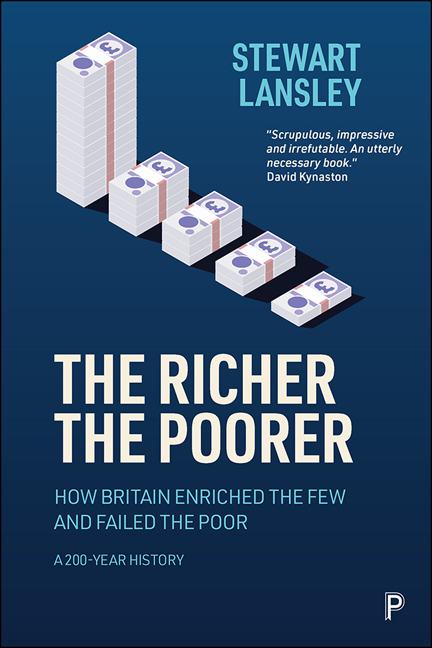Book contents
- Frontmatter
- Miscellaneous Frontmatter
- Dedication
- Epigraph
- Contents
- List of figures
- Preface and acknowledgements
- Introduction: Knighthoods for the rich, penalties for the poor
- PART I 1800–1939
- PART II 1940–59
- PART III 1960–79
- PART IV 1980–96
- PART V 1997–2010
- PART VI 2011–20
- Afterword: COVID-19 and ‘the polo season’
- Notes
- Index
20 - I’m not Mother Teresa
Published online by Cambridge University Press: 13 May 2022
- Frontmatter
- Miscellaneous Frontmatter
- Dedication
- Epigraph
- Contents
- List of figures
- Preface and acknowledgements
- Introduction: Knighthoods for the rich, penalties for the poor
- PART I 1800–1939
- PART II 1940–59
- PART III 1960–79
- PART IV 1980–96
- PART V 1997–2010
- PART VI 2011–20
- Afterword: COVID-19 and ‘the polo season’
- Notes
- Index
Summary
In May 2003, shareholders gathered at the Queen Elizabeth II Conference Centre in Central London for the annual general meeting of one of Britain's largest companies, the pharmaceutical giant GlaxoSmithKline (GSK). While company AGMs are usually formal and self-congratulatory events with anodyne speeches and luxury biscuits, this one was full of acrimony. For hours, shareholders and directors were locked in a bitter row over the pay of the company's chief executive, Jean-Pierre Garnier. A fraction over half of shareholders voted against the deal. In response to the revolt, a riled Garnier, who lived in Philadelphia rather than the UK, declared, “I’m not Mother Teresa”.
An orgy of self-enrichment
The explosion in corporate rewards that began in the 1980s continued from the millennium. This was despite the evidence that rewards were largely unrelated to corporate performance, and the way other countries such as Sweden, France and especially Japan (where group cohesion is more highly valued than individual reward) operated successful economies with lower levels of top pay. In July 2005, Richard Desmond, the proprietor of the Express newspaper titles, paid himself a ‘chairman's remuneration’ of L52 million. Just nine months earlier the global steel magnate Lakshmi Mittal, Indian born but resident in the UK, chief executive of the world's largest steel-making company, ArcelorMittal, paid himself a L1.1 billion dividend. It was then the highest private dividend ever received.
The record did not last for long. A year later, the swashbuckling and controversial high-street deal maker Philip Green topped it with a dividend of L1.2 billion from his Arcadia group of shops from Miss Selfridge to Top Shop. This was the equivalent of the annual pay of 54,000 people on average earnings. The company was used as a kind of private fiefdom by Green. Set up in his wife Tina's name, the payment went to her. Living in the tax haven of Monaco, she paid no tax on the giant payout.
‘The past decade of Labour government has proved a golden age for the rich’, concluded the Sunday Times. In the opening years of the millennium, the average earnings of the chief executives of FTSE 100 companies rose eight times as fast as those for all full-time employees.
- Type
- Chapter
- Information
- The Richer, the PoorerHow Britain Enriched the Few and Failed the Poor: A 200-Year History, pp. 177 - 187Publisher: Bristol University PressPrint publication year: 2021



